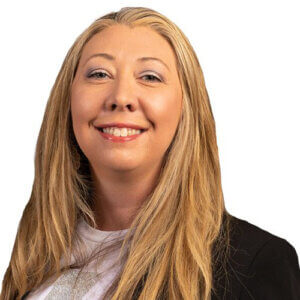Anouska Livingston was pregnant, unemployed, in debt and stressed out. The last thing she needed was to go in a store and see what diapers cost.
“How am I going to pay for all this?” she remembers asking herself. “I didn’t want to bring my daughter into the world and not be able to provide for her basic needs.”
Livingston needed help to figure it out. She got it, and now she spends her days helping people who are as stressed as she was. She is a credit counselor with InCharge, where she turned for help when those diaper fears gripped her.
Livingston doesn’t want to overdramatize things, but what she learned from credit counseling was a life-changing experience.
“I couldn’t just sit back and not share that information and try to help people,” Livingston said.
Her story has a few twists, but the overall narrative is shared by millions of consumers. Livingston’s family moved from London to Orlando, Fla., when she was a teenager.
She was the oldest of three kids and money was tight around the house. Livingston graduated from high school and went to work for a cell phone company while also attending community college.
Livingston received several credit card offers in the mail after enrolling in college. She got one card, then another, then another. Almost as if by magic, her money crunch seemed to ease.
“The credit card offers were flooding in,” Livingston said. “At the time it looked like easy money.”
Besides paying her own bills, she was helping her family out. When her parents asked whether she was overextending herself, Livingston had a stock answer.
“I’ll be able to handle it,” she said.
That’s the mind trick credit cards can play on consumers who don’t comprehend the mathematics behind interest. They max out one card and make only minimum payments, never realizing how those 15%-to-30% APR interest charges are like monthly shovels of dirt on their financial grave. Livingston’s credit debt soared to $10,000 and kept on going.
From Credit Counseled to Credit Counselor
“I needed to do something to keep my family’s head above water,” she said. “It turned out I was putting myself in debt. I didn’t want them to know about it or feel like a burden to me.”
Livingston realized she couldn’t carry the load when the company she worked for went out of business. She was a couple of months pregnant, unemployed and in credit card debt.
She doesn’t remember how much those diapers exactly cost, but Livingston knew she had to figure out a way to provide for her child. And she knew doing it on credit was not the answer.
She broke down and told her parents about her financial problems and that she wasn’t sure how to get out of credit card debt. They said they’d seen a TV commercial for nonprofit credit counseling and debt management programs or something similar.
Livingston checked around and found InCharge. By sheer coincidence, one of her friends had just gotten a job at the nonprofit debt elimination company.
“I know it sounds corny,” Livingston said, “but that looked like a sign.”
She picked up her phone and called, though it wasn’t easy to press the numbers. Livingston didn’t want to come off as a deadbeat.
“I was embarrassed, I really was,” she said. “I didn’t want to be in debt and pregnant with no way to pay for things.”
A credit counselor got on the line and listened to Livingston’s story. It wasn’t all that different from scores of others she had heard. Livingston was assured that money problems aren’t just for deadbeats. Anyone can have them.
“It was good to talk to people and know they were not judging you,” she said. “They were trying to help you.”
InCharge counselors are trained and certified by the NFCC. They study a client’s financial situation and devise a blueprint to get them on solid financial footing. In Livingston’s case, they consolidated her debt by negotiating lower interest rates with her creditors.
Livingston then made one monthly payment to InCharge, which distributed the funds to creditors. The plan works because clients can’t make those token minimum payments.
“The hardest part was at the beginning,” Livingston said, “and not having my security blanket.”
That blanket was her credit cards. They were declared off limits in the debt consolidation program she was in. When the temptation arose to use one, Livingston would remember what her counselor told her about credit-card economics and how debt sneakily piles up.
“I thought it was going to make me throw up,” she said. “With all that money I would be spending, I could buy a car or have a down payment on a house.”
That thought was so powerful that Livingston not only practiced what her counselor was preaching, she started preaching it herself. A year into her debt consolidation program she decided to start training to become a credit counselor.
That was 13 years ago. Her daughter, Gabriella, is long out of diapers, but Livingston has two sons under three years old. Thanks to the financial lessons she learned, Livingston doesn’t have to fret about buying her boys diapers.
A lot of people have those worries. Livingston sees a little bit of herself in every one of them. When they call InCharge she gives them the same treatment she received, knowing it can lead to the same result.
“They went through X to Y to Z with me so I could understand exactly what I’d be going through,” Livingston said. “I know it worked for me, and it will work for everybody else.”

5 MINUTE READ
Home » InCharge Blog »

















